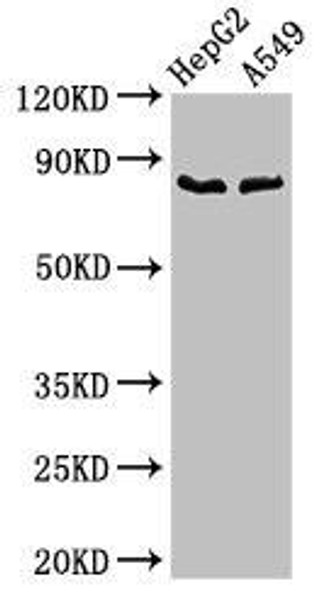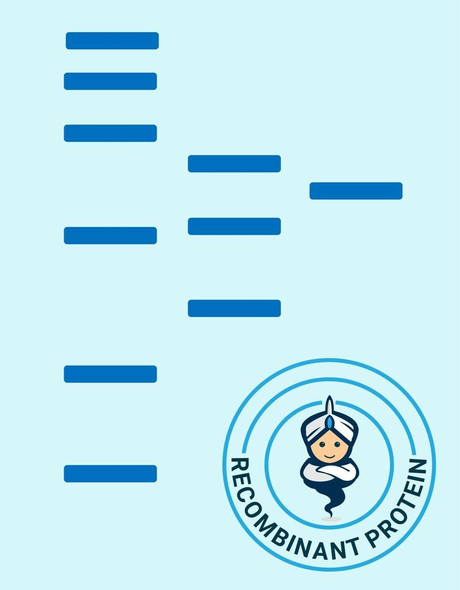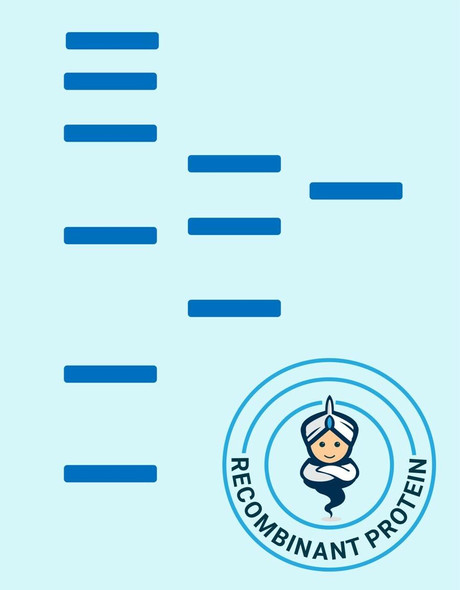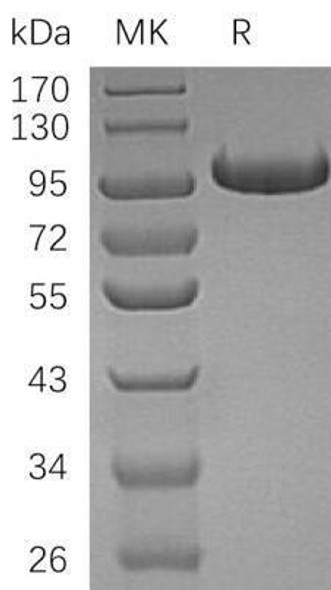Cfb Antibody (PACO53638)
- SKU:
- PACO53638
- Product Type:
- Antibody
- Reactivity:
- Mouse
- Human
- Host Species:
- Rabbit
- Isotype:
- IgG
- Applications:
- ELISA
- WB
- Antibody Type:
- Polyclonal Antibody
- Conjugation:
- Unconjugated
Description
Cfb Antibody (PACO53638)
The CFB Polyclonal Antibody (PACO53638) is a valuable tool for researchers studying the complement system, particularly the CFB protein that plays a key role in the alternative pathway of complement activation. This antibody, produced in rabbits, is highly specific for human samples and has been validated for use in multiple applications including Western blot, immunohistochemistry, and ELISA.The CFB protein is a crucial component of the complement system, which is responsible for immune defense, inflammation, and clearance of pathogens. Dysregulation of the complement system has been implicated in various diseases including autoimmune disorders, chronic inflammatory conditions, and age-related macular degeneration.
By targeting CFB, researchers can gain insights into the molecular mechanisms underlying these diseases and potentially develop new therapeutic strategies.With its high reactivity and reliability in various assays, the CFB Polyclonal Antibody (PACO53638) is an essential tool for investigating the function and regulation of the CFB protein in health and disease. Whether studying immune responses, inflammatory processes, or complement-mediated diseases, this antibody provides valuable support for cutting-edge research in immunology and biomedicine.
| Antibody Name: | Cfb Antibody (PACO53638) |
| Antibody SKU: | PACO53638 |
| Size: | 50ug |
| Host Species: | Rabbit |
| Tested Applications: | ELISA, WB |
| Recommended Dilutions: | ELISA:1:2000-1:10000, WB:1:500-1:5000 |
| Species Reactivity: | Mouse, Human |
| Immunogen: | Recombinant Mouse Complement factor B protein (23-761AA) |
| Form: | Liquid |
| Storage Buffer: | Preservative: 0.03% Proclin 300 Constituents: 50% Glycerol, 0.01M PBS, pH 7.4 |
| Purification Method: | >95%, Protein G purified |
| Clonality: | Polyclonal |
| Isotype: | IgG |
| Conjugate: | Non-conjugated |
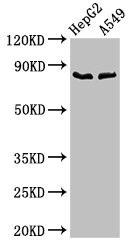 | Western Blot. Positive WB detected in: HepG2 whole cell lysate, A549 whole cell lysate. All lanes: CFB antibody at 2.8µg/ml. Secondary. Goat polyclonal to rabbit IgG at 1/50000 dilution. Predicted band size: 86 kDa. Observed band size: 86 kDa. |
| Background: | Factor B which is part of the alternate pathway of the complement system is cleaved by factor D into 2 fragments: Ba and Bb. Bb, a serine protease, then combines with complement factor 3b to generate the C3 or C5 convertase. It has also been implicated in proliferation and differentiation of preactivated B-lymphocytes, rapid spreading of peripheral blood monocytes, stimulation of lymphocyte blastogenesis and lysis of erythrocytes. Ba inhibits the proliferation of preactivated B-lymphocytes. |
| Synonyms: | Complement factor B (EC 3.4.21.47) (C3/C5 convertase) [Cleaved into: Complement factor B Ba fragment; Complement factor B Bb fragment], Cfb, Bf H2-Bf |
| UniProt Protein Function: | CFB: Factor B which is part of the alternate pathway of the complement system is cleaved by factor D into 2 fragments: Ba and Bb. Bb, a serine protease, then combines with complement factor 3b to generate the C3 or C5 convertase. It has also been implicated in proliferation and differentiation of preactivated B- lymphocytes, rapid spreading of peripheral blood monocytes, stimulation of lymphocyte blastogenesis and lysis of erythrocytes. Ba inhibits the proliferation of preactivated B-lymphocytes. Defects in CFB are a cause of susceptibility to hemolytic uremic syndrome atypical type 4 (AHUS4). An atypical form of hemolytic uremic syndrome. It is a complex genetic disease characterized by microangiopathic hemolytic anemia, thrombocytopenia, renal failure and absence of episodes of enterocolitis and diarrhea. In contrast to typical hemolytic uremic syndrome, atypical forms have a poorer prognosis, with higher death rates and frequent progression to end-stage renal disease. Susceptibility to the development of atypical hemolytic uremic syndrome can be conferred by mutations in various components of or regulatory factors in the complement cascade system. Other genes may play a role in modifying the phenotype. Belongs to the peptidase S1 family. 2 isoforms of the human protein are produced by alternative splicing. |
| UniProt Protein Details: | Protein type:EC 3.4.21.47; Protease; Secreted; Secreted, signal peptide Chromosomal Location of Human Ortholog: 17 B1|17 18.41 cM Cellular Component: blood microparticle; extracellular exosome; extracellular region; extracellular space Molecular Function:hydrolase activity; peptidase activity; serine-type endopeptidase activity; serine-type peptidase activity Biological Process: cell proliferation; complement activation; complement activation, alternative pathway; immune system process; innate immune response; proteolysis |
| UniProt Code: | P04186 |
| NCBI GenInfo Identifier: | 116126 |
| NCBI Gene ID: | 14962 |
| NCBI Accession: | P04186.2 |
| UniProt Related Accession: | P04186 |
| Molecular Weight: | |
| NCBI Full Name: | Complement factor B |
| NCBI Synonym Full Names: | complement factor B |
| NCBI Official Symbol: | Cfb |
| NCBI Official Synonym Symbols: | B; Bf; C2; Fb; H2-Bf; AI195813; AI255840 |
| NCBI Protein Information: | complement factor B |
| UniProt Protein Name: | Complement factor B |
| UniProt Synonym Protein Names: | C3/C5 convertase |
| Protein Family: | Complement factor |
| UniProt Gene Name: | Cfb |

